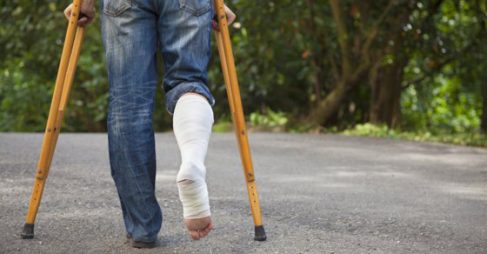 Kathleen Carkner
Kathleen Carkner

In Ottawa, and across Ontario, if you were employed at the time of a motor vehicle collision but can no longer work as a result of your injuries, your automobile insurer will likely pay you Income Replacement Benefits to help support you. But what if you were unemployed at the time of the collision? You may still be entitled to weekly benefits to help support you, in the form of Non-Earner Benefits.
What are Non-Earner Benefits?
Every automobile insurance policy in Ontario contains mandatory Accident Benefits coverage. Through your Accident Benefits, you may be eligible to receive one of the following three types of weekly benefits: Income Replacement Benefits; Caregiver Benefits; or Non-Earner Benefits.
Non-Earner Benefits are intended to compensate you if you are completely unable to carry on a normal life, as a result of the collision.
Who may qualify for Non-Earner Benefits?
In order to qualify for Non-Earner Benefits, you must be over 18 years old and you must suffer a complete inability to carry on a normal life, as a result of the collision. Additionally, you must also meet one of the following criteria:
When is someone entitled to Non-Earner benefits?
In order to be entitled to Non-Earner Benefits, you must prove that you have suffered a complete inability to carry out a normal life. You must prove that, as a result of the collision, you have sustained an impairment that continuously prevents you from engaging in substantially all of the activities you normally engaged in prior to your accident.
In Heath v Economical Mutual Insurance Company, 2009 ONCA 391, the Ontario Court of Appeal provided insurance companies with guidance on how to assess an insured’s application for Non-Earner Benefits. In considering whether you are entitled to Non-Earner Benefits, your insurance company should compare your activities and life circumstances before the accident to your activities and life circumstances after the accident.
In analyzing your pre-accident life, your insurance company should consider all of the activities that you normally engaged in prior to the accident. They must look at your pre-accident activities over a reasonable period of time prior to the collision, and not just a snapshot of your activities at the time of the collision. They should also give greater weight to those activities that you identify as being most important to your pre-accident life.
In analyzing your post-accident life, your insurance company should consider more than your isolated post-accident attempts to perform your pre-accident activities. They should analyze the manner and quality that you perform your pre-accident activities as a whole. They must also consider the degree of pain you experience when performing these activities. They should determine whether the pain you experience (either while or after performing the activities) practically prevents you from engaging in those activities – not whether you can physically do these activities.
After analyzing your pre- and post- collision activities, your insurer will pay you Non-Earner Benefits if your impairment continuously prevents you from engaging in substantially all of the activities you normally engaged in prior to your accident.
How much do you receive as Non-Earner Benefits?
The amount of the benefit depends on your circumstances. Generally, injured persons are entitled to receive $185.00 per week, less the total of all other income replacement assistance.
When do you receive Non-Earner Benefits?
These benefits become payable after 4 weeks following the accident. They are paid for a maximum of 104 weeks, so long as you continue to have a “complete inability to carry on a normal life.”
If you have been injured in a motor vehicle collision in Ontario and are wondering whether you are entitled to Non-Earner Benefits, please contact SG Injury Law and one our injury lawyers we will be happy to help you navigate the complex insurance and tort legal systems. You can reach us:
By phone: 613-518-2416
Email: info@sginjurylaw.ca
Or fill out our Case Form

Leave A Comment